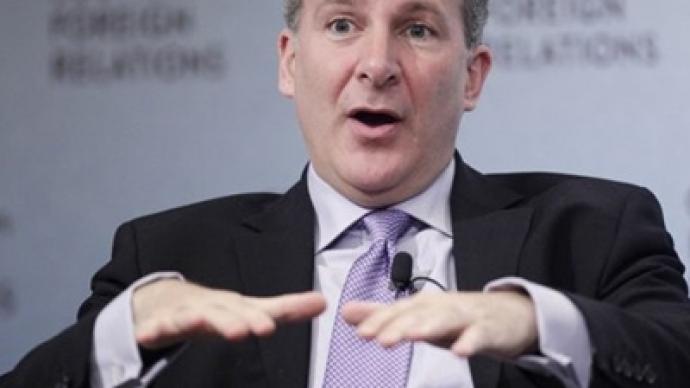Peter Schiff: Quantitative easing driving up food prices

Economic and finance ministers from the G-20 nations are meeting in Argentina to discuss the increasing volatility among food and commodity prices.
The goal is to discuss and create policies aimed at increasing the global supply of commodities to keep up with increasingly demand. However, discussion may be tense as both Argentina and Brazil oppose plans put forward by France and other countries who wish to regulate the price of commodities. They argue that producers are not at fault and that Wall Street and speculation are to blame. Food prices are no longer established based on the traditional economic notion of supply and demand for a traditional market demand. Instead speculation markets created and controlled by Goldman Sachs control global food prices. Peter Schiff, the president of Euro Pacific Capital explained that the volatility in the commodities market is caused by nations who print too much money and debase their currencies. “We [United States] are the leader. The rest of the nations seem to be following in our footsteps, unfortunately,” he said. “The more money they print the higher the prices are going to go.” Volatility is part of the market, he noted, but irresponsible monetary policies make the markets more volatile and drive prices up. “If they want to put an end to the upward trajectory and the volatility they need turn off the printing presses, they need to let interest rates go up,” Schiff added. People want to blame the weather, speculation and a number of other faults but they are not wholly to blame. The prices and volatility are caused by flawed monetary policy and quantitative easingWeather happens, Schiff said. It is normal. Speculation has occurred for some time and can actually balance out the volatility. The true culprit is monetary policy and over printing of money. “You have politicians printing money, debasing our currency. The natural consequence is pricing going up,” he explained.Bailing out Wall Street and devaluing the currency caused the problem. As this policy continues as a means to prop up real estate markets and others, it forces food and energy prices up. Politicians however seek to evade the blame by demonizing the weather and speculators. Frederick Kaufman, a contributing editor to Harper’s Magazine and the author of “A Short History of the American Stomach” said supply and demand, climate change, and speculation are all contributing the volatility in the commodities market. He explained that speciation treats the commodities market like the stock market, but commodities are not equities and the speculation has negatively impacted food prices. “What we’re seeing is a whole new level of volatility in the markets,” Kaufman said. “What’s happened is we have hundreds of billions of dollars worth of new players who have entered this market through food derivatives. They are treating commodity markets as if they are stock markets. They are treating is as though we just pump more money in and we’re happy as we watch the price rise.”Wall Street’s speculation and investment role has grown and as it has grown speculators out number market hedgers which hijacks the stability of the market. “The entire nature and form of the market has been transformed,” he said. “Ultimately what we are seeing in more volatility because the money is funny money.”













